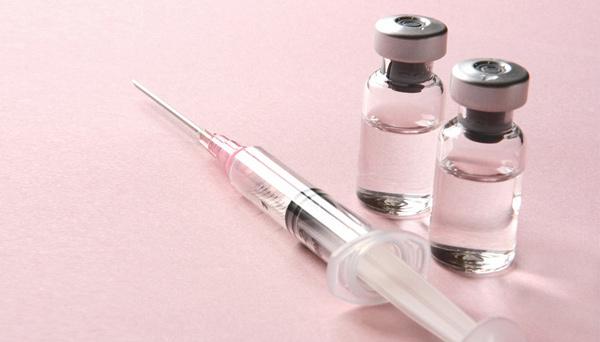You are here
‘Designer molecule lowers HIV levels’
By AFP - Apr 15,2015 - Last updated at Apr 15,2015
PARIS — Researchers said Wednesday a lab-manufactured antibody “significantly” reduced HIV blood levels in a small but promising human trial, and caused no harmful side effects.
The virus-suppressing action did not appear to last, however, and some patients developed resistance to the agent, said the authors of the research published by Nature.
This meant the designer molecule dubbed 3BNC117 may be best used in combination with other drugs, said the team — while highlighting the promise of a new, immunotherapy-based approach to fighting HIV.
“This represents potentially a new class of drugs with activity against HIV,” study co-author Marina Caskey of New York’s Rockefeller University told AFP.
“It is possible that 3BNC117 and antibodies like it will boost the patient’s own immune responses, leading to better control of their infection.”
So-called monoclonal antibodies like 3BNC117 which are cloned from a single parent immune cell, hold the promise of actually killing HIV-infected cells.
Currently, cocktails of antiretroviral drugs are used merely to suppress replication of the virus for which no cure or vaccine exists.
Antibodies remain active in the body for longer than daily-dose antivirals, said the scientists, and may be administered with longer intervals in between, perhaps once every few months.
The new agent, cloned from a cell taken from an HIV-positive person, was given to 12 uninfected volunteers and 17 infected with HIV.
Each received a single, intravenous shot in doses ranging from 1 to 30 milligrammes per kilogramme of bodyweight, and were monitored for 56 days.
All eight individuals given the highest dose showed “up to 300-fold decreases” in the amount of virus in their blood, said the US-German research team.
The viral load was lowest about a week after treatment, and remained “significantly reduced” for 28 days.
In four of the eight high-dose volunteers, viral loads were below starting levels by the end of the eight-week trial period, but resistance to the antibody developed in the other four, said the scientists.
This meant the molecule would likely not be effective on its own, and would have to be used in a combination with other drugs.
Outside experts described the findings as promising, but said a working antibody treatment for HIV was likely years away.
‘Effective and safe’
“We have been able to show for the first time that monoclonal antibodies against HIV can significantly reduce levels of the virus in blood,” Caskey said by e-mail, and that it is “safe to be administered in humans”.
Monoclonal antibodies, used in treating cancer, have proven difficult and expensive to produce for HIV.
In nature, antibodies identify and latch on to foreign agents like bacteria and viruses, tagging them for attack by the immune system.
The AIDS virus, however, constantly mutates to elude antibodies — including the potent “broadly-neutralising” (bNAb) type of antibody produced by only 10-30 per cent of HIV-infected people but only after many years by when it is too late.
By cloning bNAbs, scientists hope to treat HIV infections before the virus mutates.
In this Phase I clinical trial, 3BNC117 was active against 195 of 237 HIV strains.
But resistance is a problem, said Caskey — as with existing antiretrovirals that need to be used in combinations of different drugs for the same reason.
“One antibody alone, like one drug alone, will not be sufficient to suppress viral load for a long time because resistance will arise,” she said.
Besides the possibility of HIV treatment, the study also raises prospects for a vaccine.
“If researchers can induce an uninfected person’s immune system to generate potent antibodies such as 3BNC117, it might be enough to block the HIV infection before it can be established,” said a university statement.
The next step, said Caskey, is to test whether 3BNC117 can maintain undetectable blood levels of HIV in patients during a pause in antiretroviral therapy, as well as tests of its function in combination with antiretrovirals.
“In parallel, we are discussing studies to evaluate if 3BNC117 would be effective in preventing HIV, but time and additional resources are still required to implement such studies,” she said.
Commenting on the study via the Science Media Centre, infectious diseases expert Andrew Freedman of Cardiff University said the results suggested the treatment “might prove useful in combination with drug therapy as a means of achieving better long-term control or even cure of HIV infection”.
Related Articles
By Emily Baumgaertner First there were the drugs that could knock back HIV to undetectable levels, and the virus was no longer synonymo
Drugmakers’ use of the tobacco plant as a fast and cheap way to produce novel biotechnology treatments is gaining global attention because of its role in an experimental Ebola therapy.
For months, Vanderbilt University researcher Dr James Crowe has been desperately seeking access to the blood of US Ebola survivors, hoping to extract the proteins that helped them overcome the deadly virus for use in new, potent drugs.















